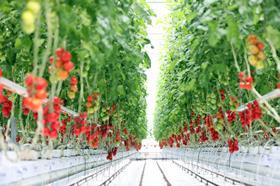
Chinese e-commerce platform Pinduoduo has revealed tomatoes will be the crop of choice in its 2021 Smart Agriculture Competition.
Now in its second year, the competition is organised jointly with China Agricultural University and Zhejiang University with support from the United Nations’ Food and Agriculture Organisation and Wageningen University and Research.
The competition promotes the development of cost-effective technology that can help farmers to increase their productivity and improve their livelihoods in an environmentally sustainable manner.
This year, the contest will draw teams from around the world to cultivate tomatoes using a combination of agronomic knowledge, algorithmic modelling, and precision automation.
Wang Hongqing, professor of the School of Horticulture at China Agricultural University, is a member of the competition’s judging panel and said the competition was a great opportunity to bring different parts of the agricultural industry together.
“The Smart Agriculture Competition plays a unique role in that it aims to foster innovation that is usable by smallholder farmers, who produce around 80 per cent of the food in China,” said Wang.
“It is an important platform for the different stakeholders in the agri-food ecosystem to come together to develop practical, cost-effective, and environmentally sustainable solutions for working farms.”
Last year teams of data scientists were pitted against traditional farmers to grow strawberries. The technology teams produced 196 per cent more strawberries by weight on average compared with traditional farmers and outperformed in terms of the profitability of the investment.
In this year’s competition, judges will be evaluating the teams not only on yield and cost-effectiveness but also on the nutritional profile of the tomatoes and the environmental sustainability of their approach.
Andre Zhu, senior vice president of global affairs of Pinduoduo, said this recognised the important role that agriculture plays in the health of the population and its impact on the environment.
“Through the Smart Agriculture Competition, we hope to interest more young scientific talent in agriculture so that they can apply their talents to helping farmers,” said Zhu.
“Helping farmers to grow better ensures not just the people to eat better but also has a direct positive impact on the environment.”



